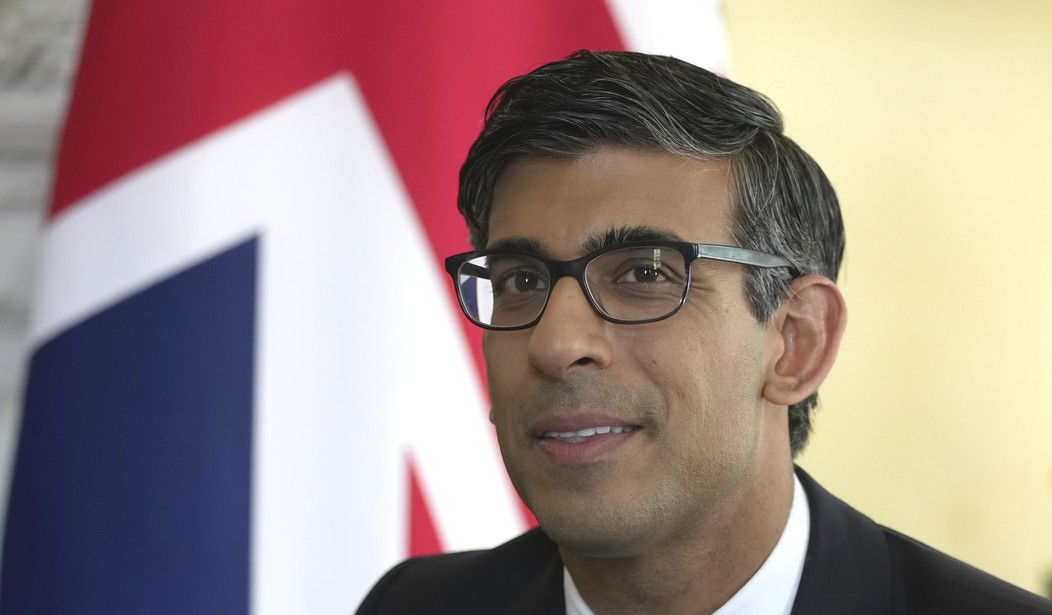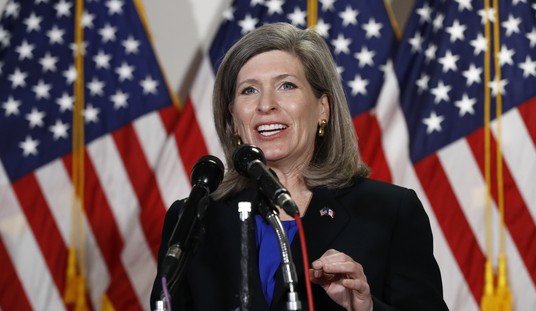Yesterday, we discussed the somewhat alarming story about Grant Shapps, the new UK Defense Secretary, and his plans to send British troops to Ukraine to conduct training operations there and other moves to increase the British presence in the country. At the time, I expressed concerns over the provocative nature of the announcement and questioned whether this could lead to some sort of escalation of the hostilities in the region. It would appear that I wasn’t the only one with reservations. Before the virtual ink was even dry on the article, British Prime Minister Rishi Sunak rushed out to inform the press that Shapps didn’t mean what his remarks sounded like and that it was all just a misunderstanding. You see, what Shapps really meant to say was that they might start moving some of their training operations and other facilities to Ukraine after the war, not while Russia was still attacking. Perish the thought.
Rishi Sunak has made clear that Defence Secretary Grant Shapps’ suggestion that British troops could train forces in Ukraine is not for the “here and now” during the war against the Russian invasion.
The Prime Minister on Sunday ruled out UK forces going to Ukraine and said that the recently appointed political head of the Ministry of Defence was discussing possible plans for the “long term”.
Mr Shapps had said in an interview with The Sunday Telegraph that “eventually” he would like to get Britain’s long-standing training of Volodymyr Zelensky’s troops “in country” rather than in the UK.
Sunak seemed to have been caught unaware by the announced plans of the new Defense Secretary and had to go into damage control mode. It’s the same thing that the White House has to do every time Joe Biden drifts off the script and starts talking about regime change in Moscow or sending our military to fight China on Taiwan’s behalf. Shapps and Sunak have probably had at least one long phone call by now to “clarify” the UK’s position.
The Prime Minister was also very likely paying attention when the Russians almost immediately did what I had cautioned might happen. Shortly after the article about Shapps was published in the Telegraph, former Russian president Dmitry Medvedev said any British troops in Ukraine “would be legitimate targets” for the Kremlin. Of course, Medvedev doesn’t make official Russian policy decisions these days and the Russians haven’t gone out of their way to intentionally target American troops who are in the country training Ukrainians. (Though some Americans have died there already.) But it’s not impossible that the Kremlin might look at British troops differently.
This works out well for Russia, at least in terms of the rhetoric surrounding the war. Any semi-official talk coming out of Moscow suggesting a possible Russian attack on British troops raises the specter of America and the rest of NATO being drawn into a hot war with Russia, one that could get very “hot” indeed if it involved the use of nukes. Putin is no doubt keeping track of the fading support for an endless flow of money to finance the war among Americans. And the recent elections in Slovakia returned a pro-Russian former PM to power in the Parliament, who has vowed to “not send a single cartridge” or any money to Ukraine. So Russia is gaining another ally in the region even as support for the Zelensky regime appears to be more tepid.
At the moment, despite the heavy costs in equipment and lives, Putin seemingly has less reason than ever to consider pulling out of Ukraine or making any significant concessions. He knows as well as anyone that he almost certainly can’t take all of Ukraine without the use of nukes, but he’s certainly not going to lose and be ejected entirely from the country, particularly Crimea. Even with the current, robust levels of funding and arms shipments, Ukraine’s military is simply not up to the task of fully defeating the Russians or even taking back the land that was annexed in 2014.
None of this means that Putin might not come to the table if a sufficiently balanced offer were to be put forward. With the initial attempt to overthrow the government in Kyiv having been thwarted, I can’t see how Putin would see any benefit in fighting a stalemate for years on end. But he’s also made it clear from the beginning that he’s not going to give back Crimea. As long as the “as long as it takes” crowd keeps talking about “victory” for Ukraine and helping them “take back their country,” you shouldn’t expect to see an end to the war or any serious peace talks.








Join the conversation as a VIP Member